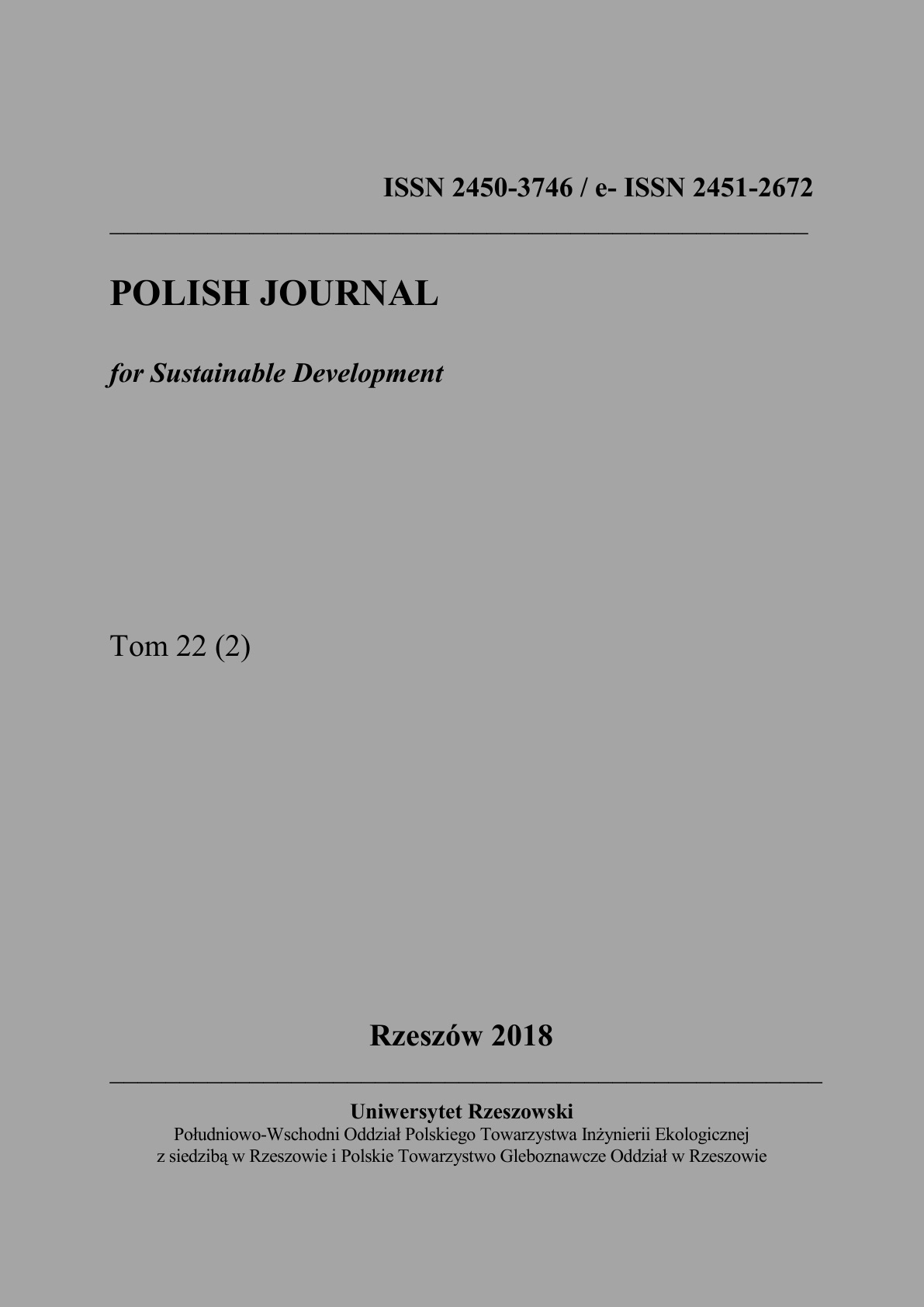Meat production and consumption from the viewpoint of sustainable development
DOI:
https://doi.org/10.15584/pjsd.2018.22.2.12Keywords:
sustainable development, animal production, meatAbstract
Out of all animal products, the most controversial is consumption of meat and its role in human diet. This is in spite of the fact that from times immemorial meat is treated as prestigious food reflecting the condition of the society. Due to the contents of valuable proteins, with proportions of amine acids beneficial for the human organism, meat, just like milk and eggs, plays an important role in food economy. The global economic development leads to increased affluence, higher demand for food and changes in models of food consumption, with growing intake of meat and its products. The necessity to satisfy the demand for meat in the dynamically growing human population is a driving factor for intensifying livestock production, which consequently leads to increasing livestock populations and related environmental pressure. Excessive and unsustainable consumption of meat does not only pose hazard for effective sustainable development, but also carries risks to people’s well-being, as one of the potential causes for diseases of affluence.
Downloads
References
Barszczewski J., Kaliszczyk A., Sakowski T., Metera E. 2010. Rozpraszanie związków azotu i fosforu z produkcji zwierzęcej. Woda - Środowisko - Obszary Wiejskie. 10. (31). 19-32.
Bendyk E. 2008. Dieta naturalna. Polityka. 44. 76-78.
Doroszewski P., Grabowicz M., Kaszkowiak J., Borowski S. 2015. Bezpieczeństwo klimatu a emisja gazów cieplarnianych przez inwentarz żywy. Logistyka. 5. 765-773.
Ferguson L.R. 2010. Meat and cancer. Meat Science. 84. 308-313.
Frala A., Kowalski R., Waśkiewicz A., Szablewski T. 2015. Wpływ marynowania na powstawanie heterocyklicznych amin aromatycznych w mięsie poddawanym grillowaniu. Aparatura Badawcza i Dydaktyczna. 20. (1). 46-51.
Jarosz M., Rychlik E. 2011. Otyłość wyzwaniem zdrowotnym i cywilizacyjnym. Postępy Nauk Medycznych. XXIV. (9). 712-717.
Kołacz R., Opaliński S. 2007. Amoniak - wciąż aktualny problem w produkcji zwierzęcej. Trzoda Chlewna. 1. 70-77.
Krzęcio-Nieczyporuk E., Antosik K. 2015. Spożycie wybranych produktów pochodzenia zwierzęcego a zachorowalność na choroby cywilizacyjne. Przegląd Hodowlany. 6. 8-12.
Kwasek M. 2013. Tendencje w spożyciu mięsa na świecie. Roczniki Ekonomiczne Kujawsko-Pomorskiej Szkoły Wyższej w Bydgoszczy. 6. 265-284.
Loring B., Robertson A. 2014. Otyłość i nierówności. Praktyczne aspekty przeciwdziałania nierównościom związanym z nadwagą i otyłością. [dok. Elektr.: https://docplayer.pl/19441041-Otylosc-i-nierownosci.html, data wejścia 15. 10. 2018].
MacRae J., O'Reilly L., Morgan P. 2005. Desirable characteristic of animal products from a human health perspective. Livestock Production Science. 94. 95-103.
Mathijs E. 2015. Exploring future patterns of meat consumption. Meat Science. 109. 112-116.
Migdał W. 2007. Spożycie mięsa a choroby cywilizacyjne. ŻYWNOŚĆ. Nauka. Technologia. Jakość. 6. (55). 48-61.
Olendrzyński K., Dębski B., Skośkiewicz J., Kargulewicz I., Cieślińska J., Fudała J., Hławiczka S., Cenowski M. 2005. Inwentaryzacja emisji do powietrza SO2, NO2, NH3, CO, pyłów, metali ciężkich, NMLZO i TZO w Polsce za rok 2003. Instytut Ochrony Środowiska. Krajowe Centrum Inwentaryzacji Emisji. Warszawa. 22-23.
Piatkowski B. 2008. Die Kuh als Klimakiller? Neue Landwirtschaft. 2. 59-60.
Podkówka Z., Podkówka W., Čermák B. 2012. Emisja gazów cieplarnianych przez świnie. Przegląd Hodowlany. 3-4. 14-15.
Rohrmann S., Overvad K., Bueno de Mesquita H. B., Jakobsen M.U., Egeberg R., Tjønne-Land A, Nailler L., Boutron-Ruault M.C., Clavel-Chapelon F., Krogh V. i współ. 2013. Meat consumption and mortality-results from the European prospective investigation into cancer and nutrition. [dok. elektr.: https://bmcmedicine.biomedcentral.com/articles/10.1186/1741-7015-11-63, data wejścia 15. 10. 2018].
Sinha R., Cross A.J., Graubard B.I., Leitzmann M.F., Schatzkin A. 2009. Meat intake and mortality: a prospective study of over half a million people. Archives of Internal Medicine. 169. 562-571.
Skubała P. 2008. Dlaczego potrzebujemy zrównoważonego rozwoju? [w:]. Zrównoważony rozwój w ujęciu interdyscyplinarnym. J. Kostecka (red.). Wyd. Uniwersytet Rzeszowski. 25-34.
Szymocha M, Bryła M., Maniecka-Bryła I. 2009. Epidemia otyłości w XXI wieku. Zdrowie Publiczne. 119. (2). 207-212.
Wasilewski Z., Barszczewski J., Wróbel B. 2008. Influence of different participation of forages from grasslands in feeding ratio on effectiveness of dairy cattle feeding. Biodiversity and Animal Feeding. 13. 873-878.
Więk A., Tkacz K., Żywica R. 2013. Zawartość wielopierścieniowych węglowodorów aromatycznych (WWA) w mięsnych produktach grillowanych w zależności od zawartości tłuszczu w surowcu. ŻYWNOŚĆ. Nauka. Technologia. Jakość. 2. (87). 39-50.
Wskaźnik zrównoważonego rozwoju Polski. 2011. Główny Urząd Statystyczny. [dok. elekt.: http://www.stat.gov.pl/gus/5840_12144_PLK_HTLM. data wejścia 12. 09. 2018].
Zachara A., Juszczak L. 2016. Zanieczyszczenie żywności wielopierścieniowymi węglowodorami aromatycznymi - wymagania prawne i monitoring. ŻYWNOŚĆ. Nauka. Technologia. Jakość. 3. (106). 5-2.
Zin M. 2016. Wpływ spożycia tłuszczów na zdrowie. [w:] Żywienie a zdrowie. M. Zin, M. Rudy (red.). Wyd. Stowarzyszenie Naukowo-Techniczne Inżynierów i Techników Przemysłu Spożywczego-Podkarpacki Oddział Wojewódzki w Rzeszowie. 199-209.
Downloads
Published
Issue
Section
License
Copyright (c) 2018 Polish Journal for Sustainable Development

This work is licensed under a Creative Commons Attribution-NonCommercial-NoDerivatives 4.0 International License.


